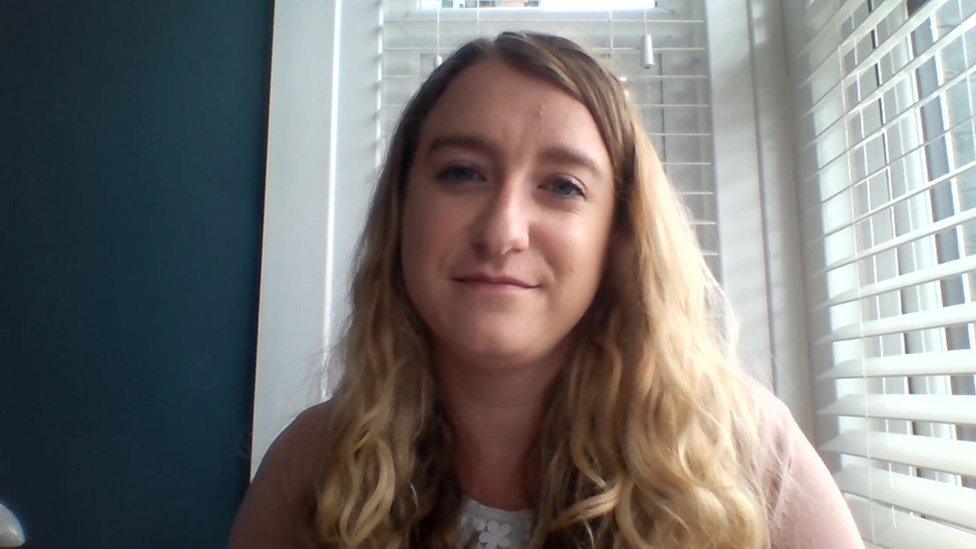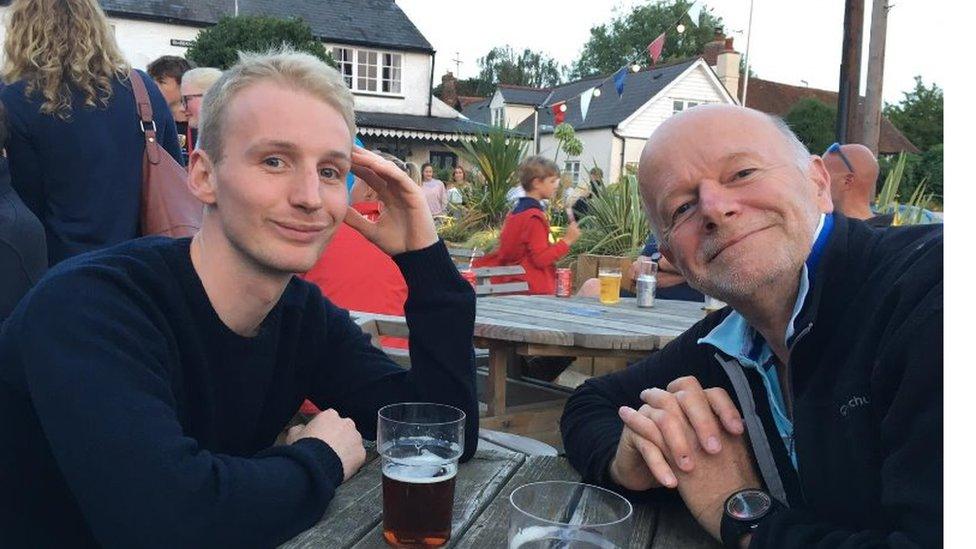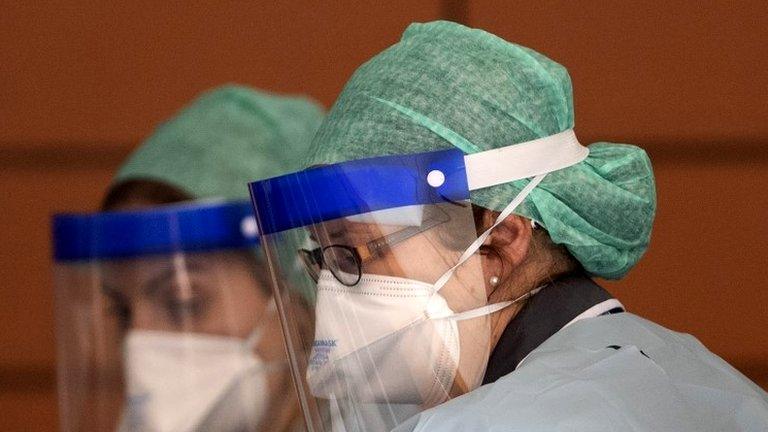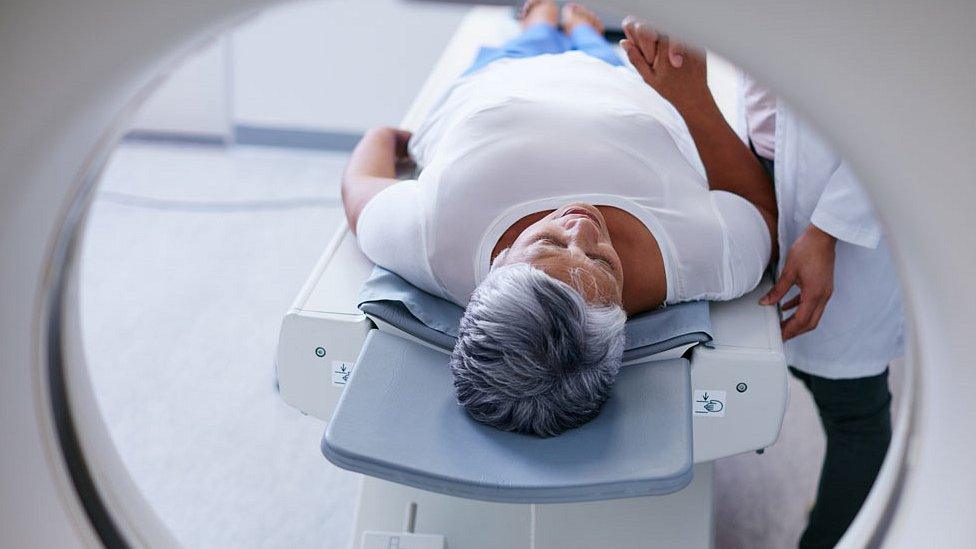Coronavirus: Bereaved families call for meeting with Boris Johnson
- Published
Bereaved relatives call for inquiry: "It wasn't good enough for our loved ones"
A group of 1,600 families bereaved by coronavirus have urged Prime Minister Boris Johnson to meet them and to order a statutory public inquiry into the government's handling of the pandemic.
In a letter to Mr Johnson, the Covid-19 Bereaved Families for Justice group warns it is preparing legal action if he does not agree to such an inquiry.
The group says this is the fifth time members have asked to meet the PM.
Mr Johnson said he was "not aware" of the group's letters.
However, he added he would meet anybody who has been bereaved.
Following his comments, the group welcomed the prime minister's agreement to meet them but No 10 are yet to confirm that a meeting will take place.
In July, Mr Johnson said now was not the "right moment" for an inquiry.
He went on to say: "Of course we will seek to learn the lessons of this pandemic in the future and certainly we will have an independent inquiry into what happened."
The Covid-19 Bereaved Families for Justice group originally wrote to both the prime minister and the health secretary in June asking for a meeting, but say they have "been met with an outright refusal to meet with the families or involve them in any review process".
They also accuse the government of "a failure to commit to a rapid review as part of a statutory public inquiry".
Unlike other inquiries, a statutory public inquiry has the power to subpoena people and take evidence under oath.

Group founder Jo Goodman says "there is really no more time to waste" when it comes to launching an inquiry into the coronavirus response
Group co-founder Jo Goodman, whose father Stuart died of coronavirus, told the BBC an inquiry was important "to learn lessons" for possible future outbreaks.
"We feel that if different actions had been taken our loved ones could still be here," she said.
"Obviously it is now too late for our loved ones but we really feel compelled to speak out and ensure lessons are learnt to save other lives."
She said any meeting with the prime minister needed to happen "within a matter of days".
Boris Johnson says there will be an independent inquiry, but that now is not the time
The group's letter says they will resort to taking legal action if the government refuses to order an inquiry "with an immediate rapid review phase - where the government won't get to mark its own homework".
Leanne Devine, head of civil liberties at Broudie Jackson Canter, said a statutory public inquiry would "ensure scrutiny and allow the families proper involvement in an independent process to determine what happened to their loved ones and to make recommendations for prevention of further loss of life".
"These families are being denied access to justice," she said.
Decisions over holding public inquiries are subject to judicial review and in 2013, the widow of Alexander Litvinenko successfully challenged the government's decision not to hold an inquiry into the death of her husband.

What could an inquiry look like?
Independent inquiries can take many forms - from full public inquiries that can take years, or in some cases decades, and cost millions of pounds; to smaller scale, more fleet-footed investigations.
The idea is to hold the powerful to account and try to learn lessons from decisions that have gone wrong, and how to avoid repeating scandals and tragic events in the future.
Recent examples of judge-led inquiries include the Leveson inquiry into media standards, or the ongoing inquiry into the Grenfell Tower catastrophe.
Other inquiries, such as 2009 Iraq inquiry, headed by a retired senior civil servant Sir John Chilcot, do not take evidence under oath.
The government of the day is normally expected to adopt many, if not all, of the recommendations of an official inquiry, although it does not always work out like that in practice.

- Published12 June 2020

- Published15 July 2020

- Published1 July 2020

- Published20 August 2020